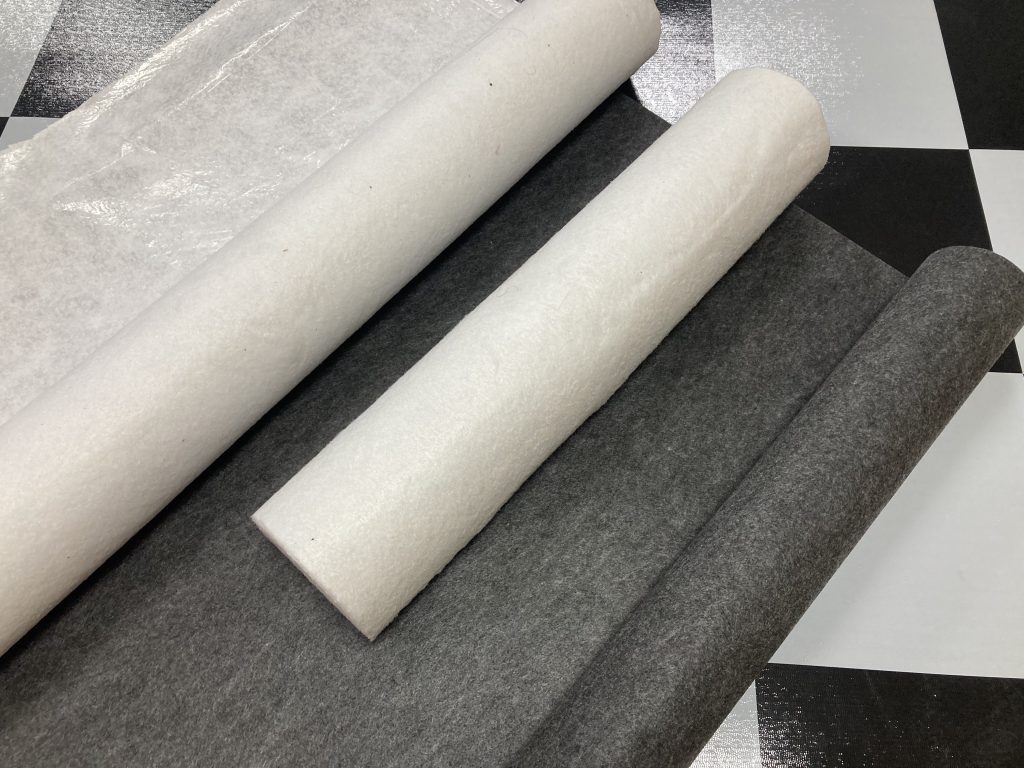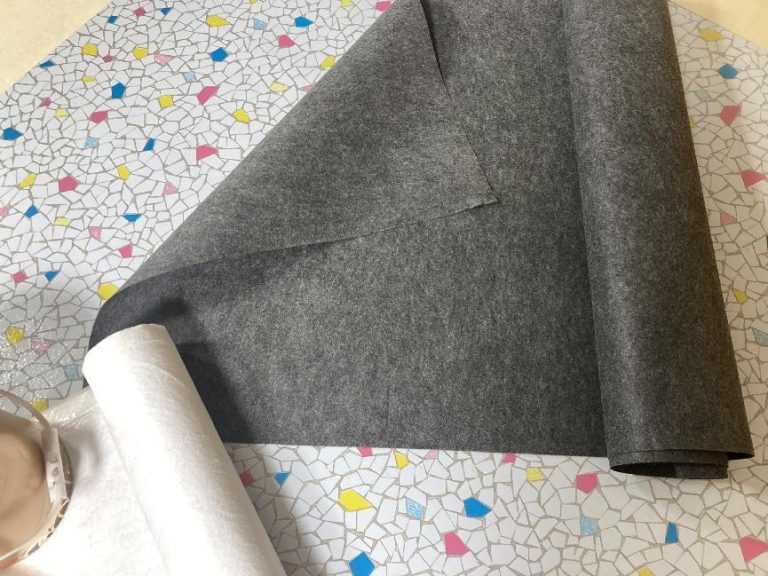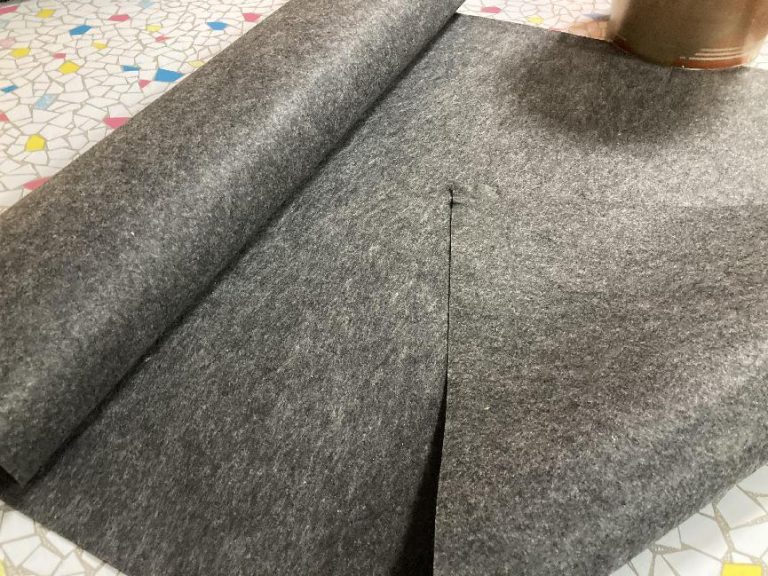Non-Woven Felt Rolls for Producing Concrete Bituminous Membranes by Chinese Manufacturers
In the construction and building industries, the production of bituminous membranes for concrete surfaces requires high-quality materials that offer durability, resistance to weathering, and excellent performance under varying environmental conditions. Non-woven felt rolls have become a key material in the manufacturing of concrete bituminous membranes, providing both structural strength and reliable protection. Chinese manufacturers have established themselves as key players in the production of these felt rolls, offering customized solutions that meet the growing demand for effective, cost-efficient construction materials.
This article delves into the features, advantages, and applications of non-woven felt rolls used in the production of bituminous membranes, highlighting the role of Chinese manufacturers in driving innovation and maintaining high-quality standards.
Table of Contents
Features of Non-Woven Felt Rolls for Bituminous Membranes
Non-woven felt rolls designed for bituminous membrane production are made from specially selected materials that provide both durability and functionality. Some key features include:
- High-Quality Non-Woven Fabric: The non-woven felt is typically made from synthetic fibers such as polyester, polypropylene, or polyethylene, ensuring that the felt is durable, resistant to abrasion, and able to withstand harsh environmental conditions. The non-woven structure enhances the material’s strength and prevents fraying, providing a consistent and reliable substrate for bituminous coatings.
- Excellent Absorbency: Non-woven felt rolls have a high absorbent capacity, which allows them to effectively bond with bituminous materials, ensuring that the bitumen adheres properly to the surface of the concrete. This bonding is crucial for creating seamless, waterproof layers in the final membrane.
- Durability and Flexibility: These felt rolls are designed to be both strong and flexible, which is essential for ensuring that the bituminous membranes are both durable and adaptable to different concrete surfaces. The ability to maintain flexibility under stress while providing structural integrity is one of the key reasons non-woven felt is preferred for this application.
- Customization Options: Chinese manufacturers offer a wide range of customization options for non-woven felt rolls, including various densities, thicknesses, and sizes. This flexibility allows manufacturers to tailor the felt to specific requirements, such as the thickness of the membrane, surface texture, or environmental conditions.
- Cost-Effective Production: Non-woven felt rolls are produced at competitive prices by Chinese manufacturers, making them an affordable option for large-scale projects. The high volume of production in China allows for cost reductions without compromising the quality of the material.
Advantages of Using Non-Woven Felt Rolls in Bituminous Membrane Production
- Enhanced Waterproofing Performance: Non-woven felt serves as an effective substrate for bituminous membranes, significantly improving their waterproofing properties. The felt acts as a reinforcing layer that supports the bitumen and enhances its ability to prevent water infiltration, which is crucial for applications like foundation waterproofing, roofing systems, and damp-proofing.
- Improved Bonding Strength: The non-woven fabric structure provides excellent bonding between the felt and bitumen, ensuring a stronger adhesion that helps to prevent delamination over time. This strong bond is particularly important in applications exposed to moisture or extreme temperature fluctuations.
- Long-Term Durability: Non-woven felt rolls contribute to the overall longevity of bituminous membranes. The combination of high-quality felt and bitumen creates a membrane that is resistant to environmental stressors such as UV rays, temperature changes, and chemical exposure. This durability ensures that the membrane remains intact for many years, reducing the need for repairs and replacements.
- Resistance to Mechanical Stress: Non-woven felt rolls are designed to withstand mechanical stress and pressure during installation and over the lifetime of the membrane. The ability of the felt to maintain its integrity under load ensures that the bituminous membrane continues to function optimally even under challenging conditions.
- Ease of Application: The non-woven felt rolls are easy to handle and apply during the production of bituminous membranes. They can be quickly cut, shaped, and integrated into the manufacturing process, speeding up production times and reducing labor costs.
- Environmental Benefits: Many Chinese manufacturers use eco-friendly materials to produce non-woven felt rolls, ensuring that these products meet environmental standards. The non-toxic nature of the materials used in production makes these felt rolls safe for use in construction projects with minimal environmental impact.

Applications of Non-Woven Felt Rolls in Concrete Bituminous Membranes
The use of non-woven felt rolls in bituminous membrane production is essential for a variety of construction applications. Some key areas where these materials are commonly used include:
- Waterproofing Systems: Non-woven felt is used extensively in the production of waterproofing membranes for concrete foundations, basements, and roofs. The felt reinforces the bitumen and ensures that the membrane effectively prevents water ingress, which is crucial for maintaining the integrity of the structure.
- Roofing Applications: Non-woven felt rolls are used to produce bituminous roofing membranes, providing a durable, waterproof layer that protects buildings from the elements. These membranes are commonly applied in commercial and residential roofing projects.
- Road Construction: In road construction, non-woven felt rolls are used to produce bituminous membranes that improve the strength and stability of roads and pavements. These membranes offer resistance to moisture and enhance the durability of the road surface.
- Damp Proofing: Non-woven felt rolls are also used in the production of damp-proof membranes for concrete floors and walls. These membranes help prevent the migration of moisture from the ground into the building, protecting the structure from potential damage caused by moisture buildup.
- Industrial and Commercial Applications: In various industrial and commercial settings, non-woven felt rolls are used to produce specialized bituminous membranes that offer protection against chemical exposure, moisture, and extreme temperatures, extending the life of industrial surfaces and infrastructure.
Conclusion
Non-woven felt rolls are a critical material for the production of high-quality bituminous membranes used in concrete applications. Manufactured by Chinese producers, these felt rolls offer exceptional durability, flexibility, and cost-effectiveness, making them ideal for use in a wide range of construction and waterproofing applications. By improving the bonding strength, waterproofing performance, and long-term durability of bituminous membranes, non-woven felt rolls contribute to the overall quality and reliability of the final product.
As Chinese manufacturers continue to innovate and meet the growing demands of the construction industry, the use of non-woven felt rolls for producing concrete bituminous membranes will remain an essential element in ensuring the integrity, longevity, and safety of modern buildings and infrastructure projects.


